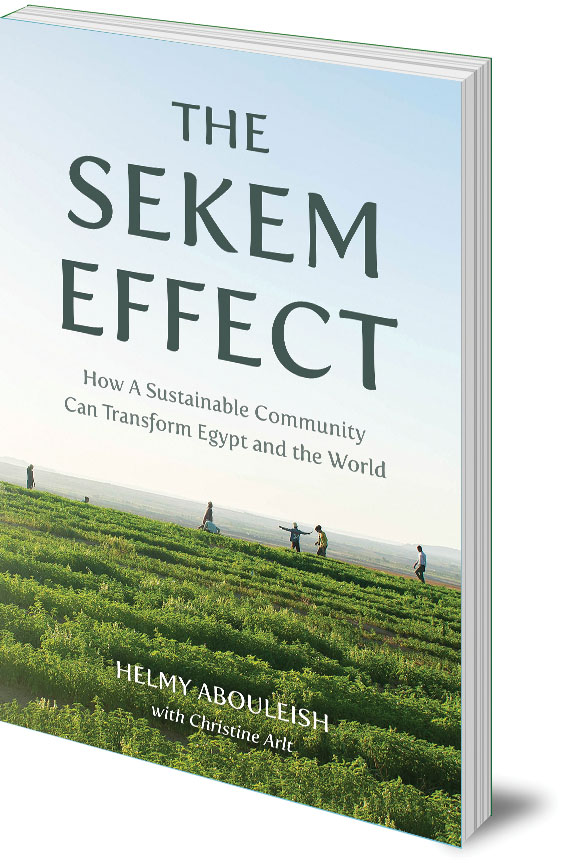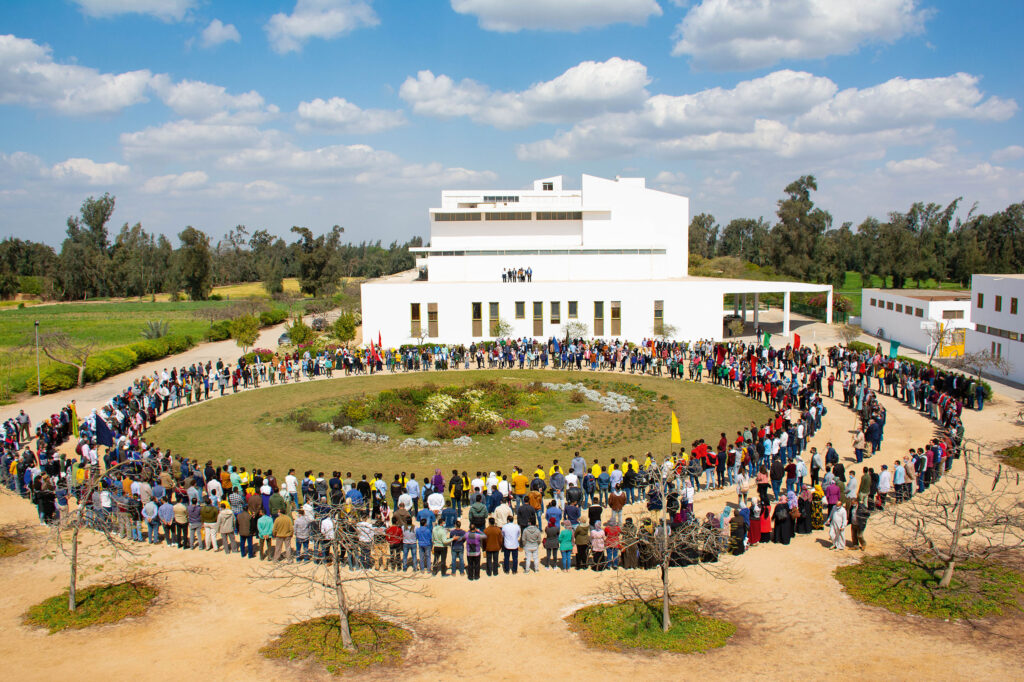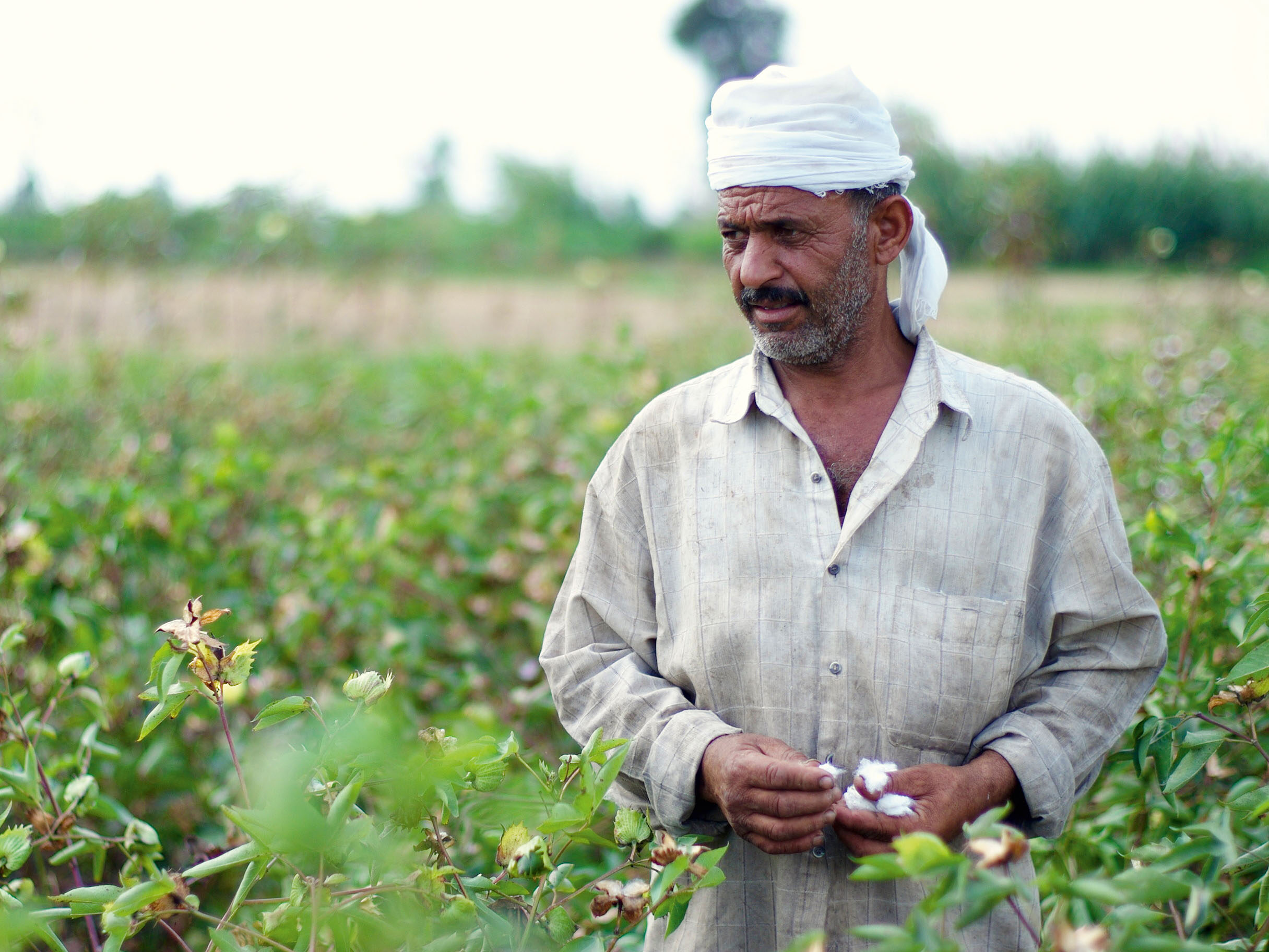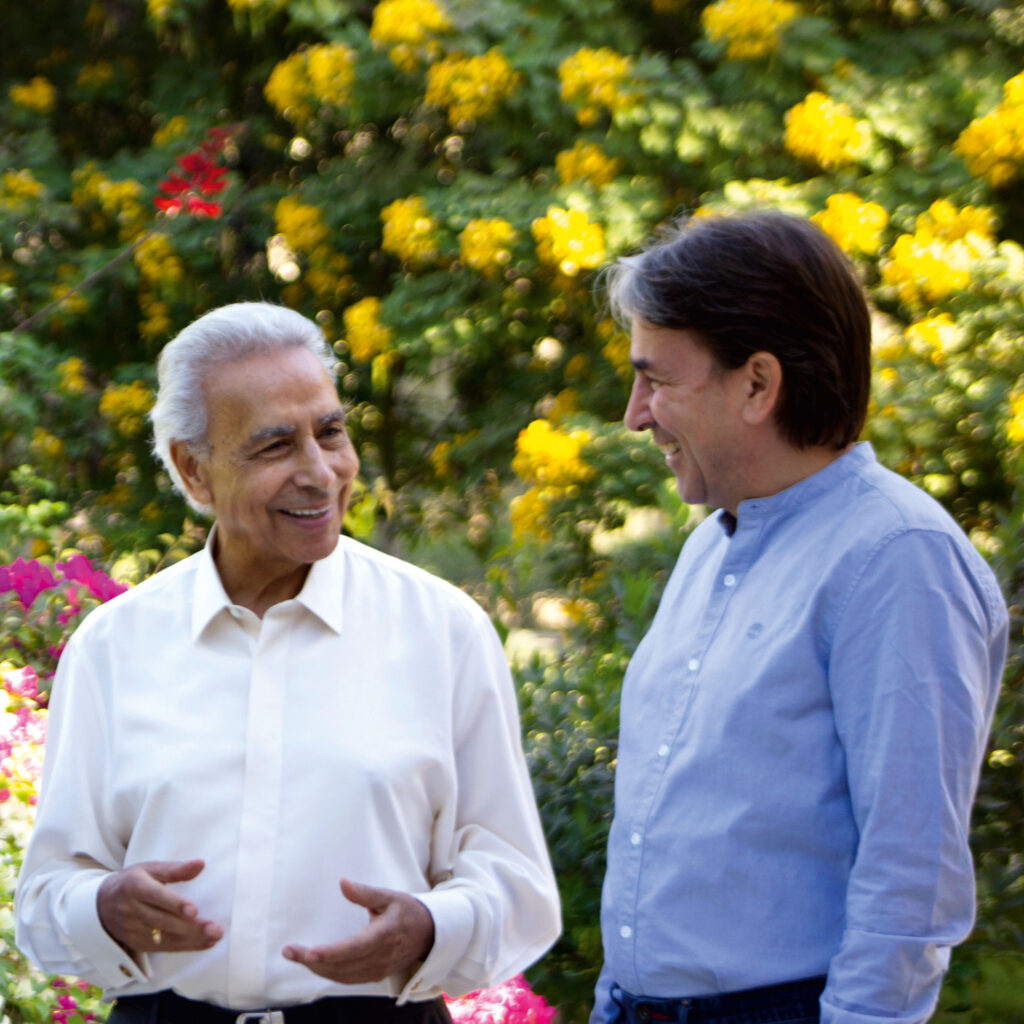The Sekem Effect
by Floris Books • 27 May 2025 • Biodynamics • 0 Comments

How a sustainable community can transform Egypt and the world
When Dr Ibrahim Abouleish founded Sekem in 1977, his visionary aim was to create a new kind of sustainable community in the Egyptian desert where high quality biodynamic crops were grown, where workers and residents received holistic healthcare and their children received a meaningful education. In the years since, Sekem has gone from strength to strength, building an impressive network of farms across Egypt and Sudan, and working with local populations to bring about real social change.
The Sekem Effect is an inspiring book in which Helmy Abouleish, son of Dr Abouleish and Chief Executive of Sekem, alongside Christine Arlt, describes the next stage in the development of this innovative community. Through a series of pioneering projects, they set out their vision for an integrated transformation of Egyptian society in the coming decades in areas relating to ecology, economics, culture and social transformation.
In this extract, learn how Ibrahim Abouleish transformed his vision for Sekem into real results, including the ‘cotton story’ – one of Sekem’s great successes – which demonstrates Sekem’s role in influencing Egyptian policy on the use of pesticides in cotton fields.
The vision becomes reality
Ibrahim Abouleish used the biodynamic method of agriculture to revitalise the soil and keep it fertile in a sustainable way. The vision took shape and was given the name Sekem, which referred to the ancient Egyptian term for the life-giving force of the sun. Among the first to join him were Egyptian farmers and field workers, to whom he conveyed the meaning of biodynamic agriculture with the help of Islam. Medicinal herbs were cultivated to make teas and herbal medicines, and companies sprang up to process the field produce into healthy, high-quality food and other products. Soon, the hustle and bustle of the new Sekem farm became even more colourful. The workers’ children and those from the surrounding villages attended the schools and training workshops that Ibrahim gradually established with the help of his friends. More people joined the project – from Egypt but also from Europe – and that was a blessing, because the vision needed people to become a reality.
Today, the desert is thriving. Many hundreds of people now live, learn and work on around 200 hectares (495 acres) of formerly barren land near the town of Bilbeis, some 70 kilometres (45 miles) north-east of Cairo.

At the start of every day at Sekem, people gather and stand in circles to reflect on their shared commitment

With people came growth, successes and failures. One of many examples of Sekem’s success is the cotton story. In the late 1980s, more and more pesticide residues were found in Sekem herbs, which were grown under strict biodynamic guidelines. It became clear that these came from aeroplanes spraying pesticides over nearby cotton fields to control pests. We were initially unable to convince the Egyptian Ministry of Agriculture how harmful these chemicals are to the environment and to people. The only way to put an end to this practice was to grow organic cotton ourselves and prove that this could be done successfully without the use of pesticides. Together with international and national experts, research was conducted for several years in the laboratory and later in the field until Sekem was able to prove that unsprayed organic cotton could produce as much revenue as conventional cotton. As a result, the Egyptian Ministry of Agriculture was persuaded to ban the spraying of chemical pesticides from aeroplanes, reducing the annual use of pesticides in Egypt by over 90%. The large quantities of high-quality organic cotton that Sekem had grown were self-processed instead of being sent for conventional processing, which would have involved the use of toxic substances such as chemical dyes. This led to the foundation of the Sekem company NatureTex as well as the Egyptian Biodynamic Association (EBDA), which to this day supports farmers throughout the country in converting from conventional to biodynamic agriculture.

This success was also the first clear sign that Ibrahim Abouleish’s seemingly utopian plans could become a reality and work in practice. In all spheres, in the economy as well as in culture, Sekem’s successful developments are an example of how important a network is. People all over the world support Sekem’s cause in different ways. For decades, many activities have been supported by the Sekem associations in Europe with great commitment and out of a deep solidarity with our ideals. Many of our business partners stand by our side in true partnership. It became clear just how important these reliable business partners are during and after the revolution in Egypt in 2011.
In 2012, despite the great political crisis occurring at the time, the Heliopolis University for Sustainable Development, initiated by Sekem, finally opened its first three faculties. Ibrahim Abouleish had always been keen to develop a university that would combine teaching and applied research for the future of young people. He once wrote in a newsletter:
Sekem must reach a critical size so that this idea can be grasped. This includes a university because there people can learn to do research, they can come to terms with the Sekem idea. You can then show scientifically that biodynamic agriculture makes the soil fertile.
The many international honours that Sekem has received since the turn of the millennium has contributed to the grasping of this idea. In particular, the award of the alternative Nobel Prize (the Right Livelihood Award) in 2003 supported the spread of the Sekem vision throughout the world.
About the Authors

Helmy Abouleish is the Chief Executive of Sekem, and son of founder Dr Ibrahim Abouleish. He is a member of several international organisations, including the World Economic Forum and the World Future Council, and is president of Demeter International. Helmy is a popular speaker at international events and conferences on the subject of sustainable development. He lives with his family at Sekem, north-east of Cairo, Egypt.
Helmy with his father Dr Ibrahim Abouleish
Christine Arlt is the managing director of the German branch of Friends of Sekem. She lives in Cologne, Germany.
More books on biodynamics


